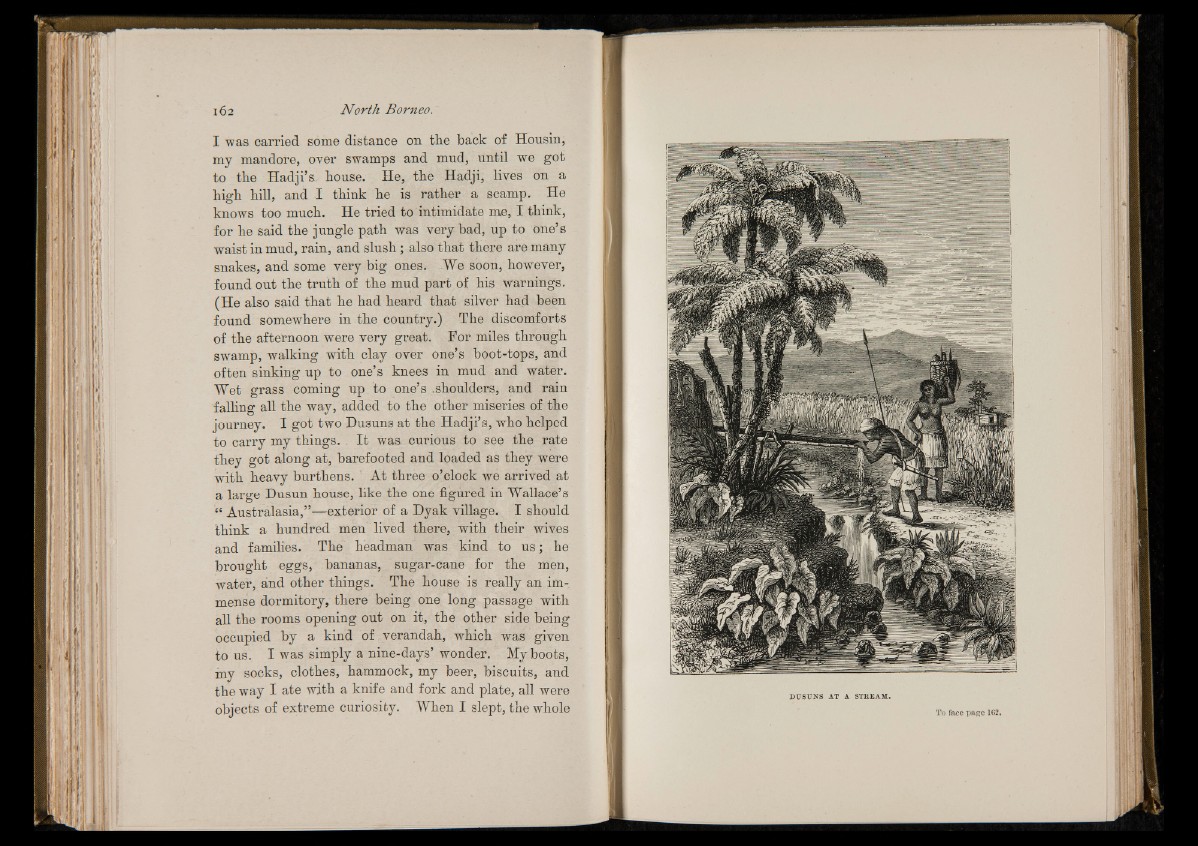
I was carried some distance on the back of Housin,
my mandore, over swamps and mud, until we got
to the Hadji’s house. He, the Hadji, lives on a
high hill, and I think he is rather a scamp. He
knows too much. He tried to intimidate me, I think,
for he said the jungle path was very bad, up to one’s
waist in mud, rain, and slush; also that there are many
snakes, and some very big ones. We soon, however,
found out the truth of the mud part of his warnings.
(He also said that he had heard that silver had been
found somewhere in the country.) The discomforts
of the afternoon were very great. For miles through
swamp, walking with clay over one’s boot-tops, and
often sinking up to one’s knees in mud and water.
Wet grass coming up to one’s .shoulders, and rain
falling all the way, added to the other miseries of the
journey. I got two Dusuns at the Hadji’s, who helped
to carry my things. . I t was curious to see the rate
they got along at, barefooted and loaded as they were
with heavy burthens. At three o’clock we arrived at
a large Dusun house, like the one figured in Wallace’s
“ Australasia,”-—exterior of a Dyak village. I should
think a hundred men lived there, with their wives
and families. The headman was kind to u s; he
brought eggs, bananas, sugar-cane for the men,
water, and other things. The house is really an immense
dormitory, there being one long passage with
all the rooms opening out on it, the other side being
occupied by a kind of verandah, which was given
to us. I was simply a nine-days’ wonder. My boots,
my socks, clothes, hammock, my beer, biscuits, and
the way I ate with a knife and fork and plate, all were
objects of extreme curiosity. When I slept, the whole
DUSUNS AT A STREAM.
To face page 162.